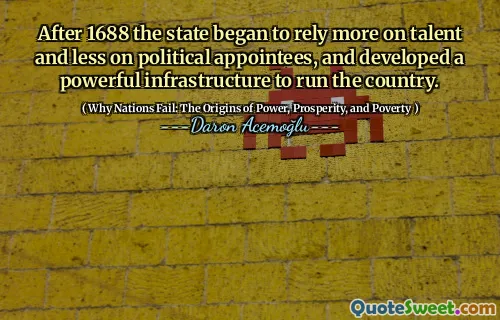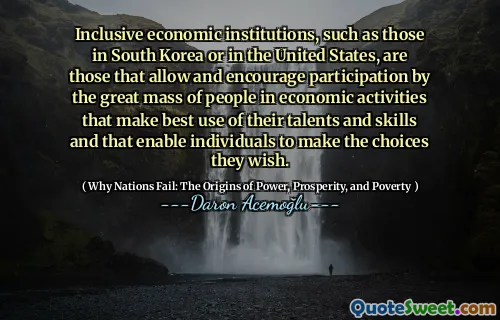Daron Acemoğlu is a prominent economist known for his extensive research on economic development, political economy, and income distribution. He has contributed significantly to the understanding of how institutions impact economic growth, exploring the relationship between political and economic structures. His work often emphasizes the role of inclusive institutions in fostering prosperity and stability, arguing that countries with equitable systems tend to achieve better outcomes. As a professor at MIT, Acemoğlu has published numerous influential papers and books. His collaboration with other economists, notably James A. Robinson, has yielded powerful insights into the mechanics of political power and its effect on economic policy. Their joint work highlights how powerful elites can hinder economic progress through the establishment of extractive institutions, which benefit a few at the expense of the broader population. Acemoğlu's approach integrates historical analysis with theoretical frameworks, allowing for a deeper understanding of the factors that influence national trajectories. His research underscores the importance of creating and maintaining strong, accountable institutions to promote growth and mitigate inequalities across different societies.
Daron Acemoğlu is a highly regarded economist primarily recognized for his research in economic development and political institutions. His works delve into the complex interactions between economics and politics, advocating for inclusive systems that support growth.
As a professor at MIT, Acemoğlu has authored numerous influential publications, often collaborating with fellow economists to deepen the understanding of institutional impacts on economies. Their analyses reveal the detrimental effects of extractive political systems.
His unique blend of historical context and theoretical insights provides valuable perspectives on how societies can foster equitable growth through effective institutional frameworks. Acemoğlu's significant contributions continue to shape discussions around economic policies and development strategies worldwide.
More »
Today Birthdays
1955 -
Max Lucado
1946 -
John Piper
1842 -
William James
1907 -
Abraham Joshua Heschel
1887 -
Aldo Leopold
1755 -
Alexander Hamilton
1976 -
Alethea Kontis
1971 -
Mary J. Blige
1825 -
Bayard Taylor
1943 -
Jim Hightower
1885 -
Alice Paul
1923 -
Carroll Shelby
1928 -
David L. Wolper
1954 -
Kailash Satyarthi
1972 -
Amanda Peet
1946 -
Naomi Judd
1970 -
Malcolm D. Lee
1955 -
Christian Marclay
1973 -
Rahul Dravid
1987 -
Jamie Vardy
1942 -
Clarence Clemons
1992 -
Fatima Sana Shaikh
1948 -
Larry Harvey
1930 -
Rod Taylor

